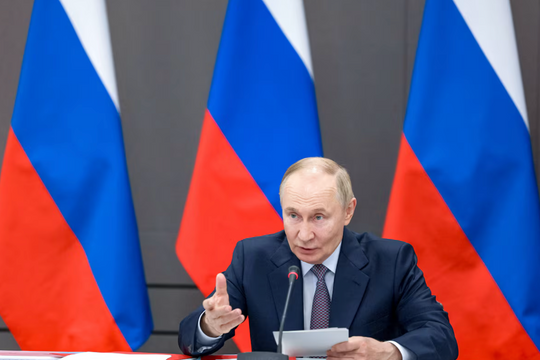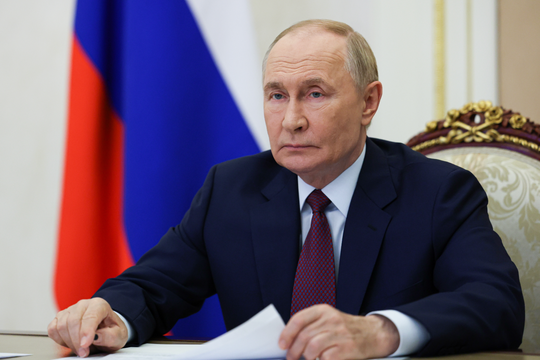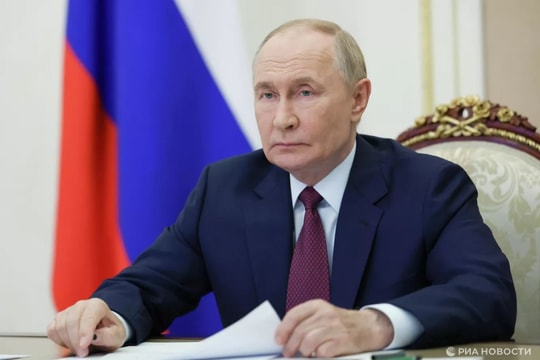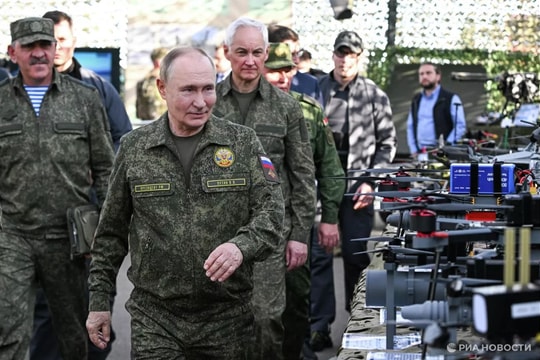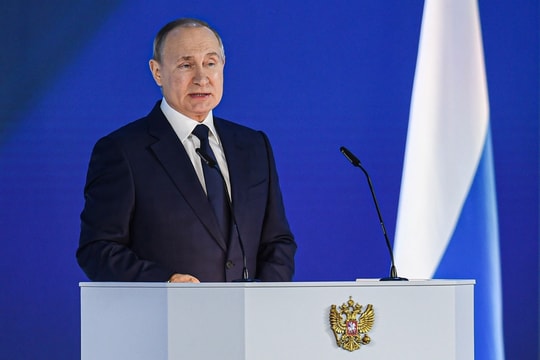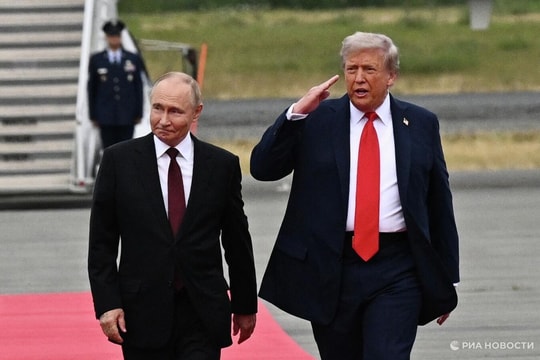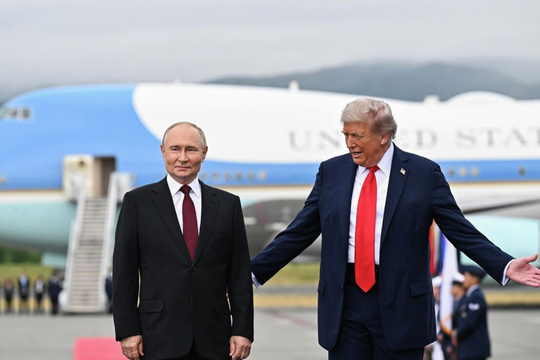World Cup - Putin's chance to show off his soft power
Russia's hosting of the World Cup helps the country demonstrate its role as a global power and dispel the perception of its isolation.
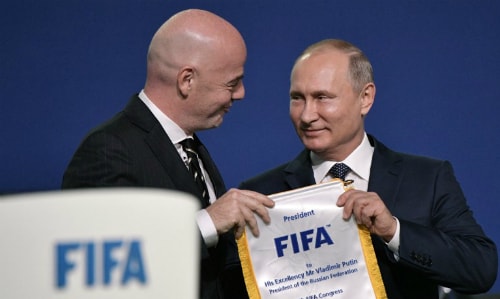 |
| Russian President Putin (right) and FIFA President Gianni Infantino at the FIFA Congress in Moscow on June 13. Photo: AFP. |
In 2010, while bidding to host the 2018 World Cup, Russia said that hosting the tournament would turn them into "a completely different country" and "people would become brothers and sisters of the whole world family," according toNYTimes.
However, four years later, tensions between Russia and the West have risen following its annexation of Crimea, the downing of flight MH17, Russia's support for Syrian President Bashar al-Assad and accusations of meddling in Western elections.
Vladimir Frolov, an independent analyst, said that after Putin returned to the presidency in 2012, Russia's foreign policy was not about engaging with other powers but rather like "a cat walking alone".
However, Russia still wants to show that it possesses the power of a great power. It cannot show it through military or financial means because of economic difficulties. Major sporting events are a reasonable substitute.
Tournaments such as the 2014 Sochi Winter Olympics and the 2018 World Cup have cast Russia as a global power, helping to bolster national pride and dispel the perception that the West is isolating Russia through international sanctions, diplomatic expulsions and other measures.
"We are going through a period of isolation and it is important for Russia to show that we are still a member of the club of great powers," said Gleb Pavlovsky, a political analyst and former adviser to the Kremlin.
Major sporting events also reflect Putin's desired image of Russia. "The demonstration of strength, power and collective success is very important to him," said Lev D. Gudkov, director of the Levada Center pollster.
However, the 2014 Winter Olympics in Sochi did not really achieve results. Western leaders did not attend, and Russia's medal record was later disqualified due to allegations of doping.
The World Cup now offers them another opportunity. The trade tensions between the US and Europe that erupted at the G7 summit in Canada last week also played into Russia’s hands.
Trump on June 9 refused to sign the joint statement of the G7 summit, he and his advisers then criticized Canadian Prime Minister Justin Trudeau as "treasonous" and "stabbing in the back." He also posted a series of tweets targeting Canada, Germany and the European Union (EU), accusing them of unfair trade practices and not spending enough on security.
Trump appeared to be upset by Trudeau's comments during a press conference where the Canadian Prime Minister criticized Trump's use of national security as a justification for imposing tariffs on steel and aluminum imports. Trudeau said the decision was "insulting" to Canadian veterans who have fought alongside their American allies in many wars.
Last week, when asked about tensions between the US and Europe, Putin said he had long warned European leaders about the US extending its authority abroad through sanctions and other measures but that no European leader had "done anything to stop this trend".
Putin has recently sought to portray Russia as a reliable friend of Europe. Populist leaders in Greece, Hungary, Italy and Austria have made friendly gestures towards Putin. German Chancellor Angela Merkel and French President Emmanuel Macronboth visited Russia in May to discuss saving the Iran deal.
“Putin thinks he doesn’t need to change,” Frolov assessed. “Trump’s decision has eased the pressure on Russia to change.This is the most favorable international situation for Russia since 2013."
There have been some international efforts to keep up pressure on Russia during the World Cup. Human Rights Watch has called on world leaders to boycott the opening ceremony unless Russia takes action to protect civilians in Syria. Some European lawmakers have also called for a boycott of the World Cup over Russia's alleged poisoning of a former double agent in England.
However, Putin is a popular figure in countries that oppose the US, so a successful World Cup could bring Russia soft power.
The tournament's slogan, "Russia never sleeps," will please party-loving soccer fans. Moscow is also undergoing a more than $3 billion infrastructure overhaul that will widen sidewalks, plant trees, and offer services like scooter rentals and add Roman letters to subway signs.
Additionally, on the domestic political front, Putin, who is just starting his fourth term, could use the World Cup to promote national unity and nostalgia for Soviet-era achievements.
When Russia won the right to host the 2014 Winter Olympics, Putin said it represented how the world viewed Russia - only a global power could host such an event.
Now, the hosting of the World Cup may also cause many to have a similar view, especially after an investigation by the World Football Federation (FIFA) determined that Russia did not commit bribery in the process of winning the right to host.
"The Kremlin sees the ability to host an international event as winning a small war," Pavlovsky said. "For the Kremlin, scale is very important. The larger the scale of an event, the greater the power it projects."
Moreover, it cannot be ignored that Putin is very fond of sports. He learned to play hockey after becoming president and often swims or rides horses. Putin believes that hosting the tournament will promote the spirit of sports and fitness among Russians and can foster a more promising team.
In fact, Putin admits that Russia is not a football powerhouse. Its national team is ranked 70th in the FIFA rankings. No World Cup host country has ever ranked that low.
But Putin didn't seem too concerned. When asked who would win, he replied: "the organizers."

